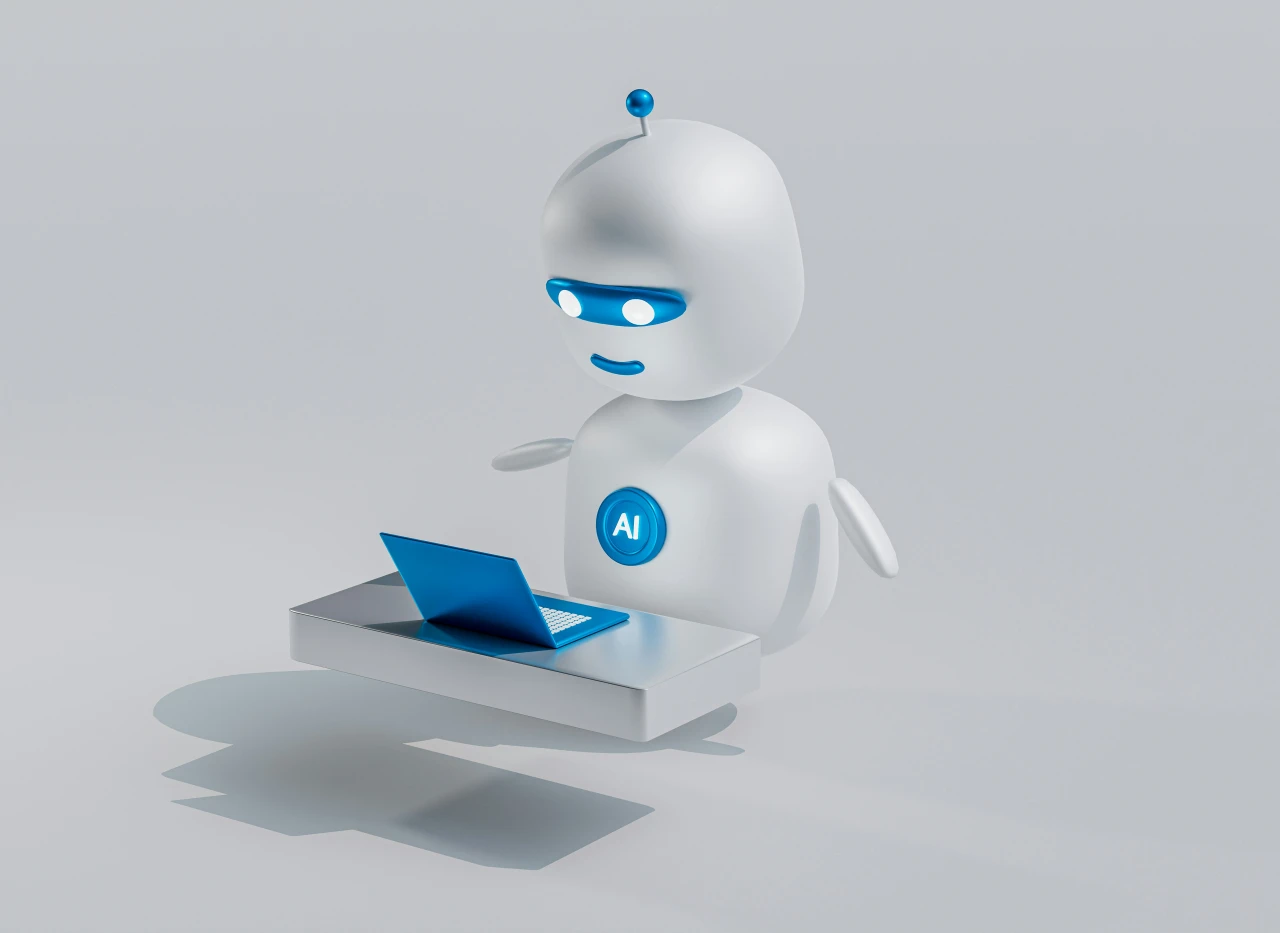
The impact of AI on the job market
Artificial intelligence (AI) has been shaping technological advancements since the 1950s. Initially, AI research aimed to create systems capable of mimicking human intelligence. Over the past few decades, AI has made significant progress, especially with the emergence of generative AI, such as ChatGPT. These systems can generate natural language texts and engage in interactive conversations with people. However, AI isn't limited to generative systems; other types of AI, like machine learning algorithms, analyse images, process data, and solve complex problems. It's important to note that AI does not possess real intelligence—it has no self-awareness or emotions and functions based solely on pre-programmed algorithms.
Historical overview
AI has been present in our daily lives for quite some time, often without us even realizing it. For example, medical image analysis systems assist in the early detection of cancer, while fraud detection algorithms in the financial sector help ensure transaction security. The application of AI is not new; it has been used in various fields like industrial automation and logistics for decades. These examples demonstrate that AI has long played a crucial role in supporting human activities and increasing efficiency.
AI's impact on the job market
Collaboration between AI and humans is becoming increasingly important in the job market. AI can take over certain tasks, not entire jobs, allowing people to focus on more creative and strategic work. Tasks that AI can handle include monotonous, repetitive activities that are often time-consuming and add little value.
The advantages of office assistants and automation
For instance, "office assistants" powered by AI can automate administrative and routine tasks. These AI systems can manage tasks like scheduling appointments, sorting and responding to emails, and organizing data. This type of automation boosts efficiency and reduces human error, which is especially valuable when handling large volumes of data.
AI’s performance in data management
AI is particularly strong in data analysis, predictive modelling, and performing routine tasks. For example, in the financial sector, AI algorithms can predict market trends, detect fraud, and assist in risk management. In healthcare, AI-based systems support medical diagnoses, develop treatment plans, and optimize patient care. A 2019 study by Stanford University revealed that AI diagnostic systems can achieve accuracy comparable to that of human doctors, which could be especially valuable in underfunded healthcare systems.
AI’s role in various industries
AI offers significant benefits across many industries. In the automotive sector, AI-powered systems enhance manufacturing processes, reduce errors, and boost productivity. AI-driven robots can perform complex tasks such as assembly and quality control. In the logistics sector, AI optimizes delivery routes, reducing shipping time and costs, while improving customer satisfaction. For instance, Amazon uses AI-based systems in its warehouses to automate product storage and shipment, increasing efficiency and reducing the workload on human employees.
Overall, integrating AI into the job market is an inevitable and necessary step that can bring numerous positive effects. However, both employers and employees must prepare for this shift. To fully harness the opportunities AI offers, continuous training and mastering new technologies are essential. AI benefits not only companies but also workers who can acquire new skills and work in more creative roles.
Data-driven decision making
AI algorithms play a crucial role in data-driven decision-making. They can analyse vast amounts of data and detect patterns that are difficult for humans to spot. These algorithms help companies make strategic decisions, forecast market trends, and analyse customer behaviour. Thanks to data-driven decision-making, companies can make more accurate and informed decisions, giving them a competitive edge.
AI’s impact on the recruitment process
The introduction of text-analysing AI is transforming the interview process. From pre-screening resumes to conducting automated interviews, AI can handle many tasks previously performed by humans. These systems quickly and efficiently analyse candidate data, make predictions about their suitability, and can even conduct interviews.
Resume analysis and pre-screening
One of the most widespread applications of AI in the recruitment process is the pre-screening of resumes. AI systems can quickly scan through large volumes of resumes and select those that best match the job requirements. The algorithms evaluate candidates based on various factors, such as work experience, educational background, and relevant skills. This process not only saves recruiters time but also increases the accuracy of candidate selection. According to a 2018 LinkedIn study, more than 60% of recruiters use some form of AI for candidate pre-screening, significantly reducing hiring time and costs.
Automated interviews
Automated interviews are also becoming increasingly popular. These AI-based systems can conduct video interviews, analyse candidate responses, and generate performance evaluations. AI considers not only verbal answers but also body language, facial expressions, and tone of voice. This technology helps recruiters create objective assessments, minimizing the influence of human biases. For instance, HireVue, an AI-powered interview platform, once analysed facial expressions to determine candidate suitability, though this method has been phased out in recent years.
Speed and efficiency
One of the key advantages of AI systems is their ability to process large volumes of applications in a short amount of time, significantly increasing the efficiency of the recruitment process. As a result, recruiters can dedicate more time to strategic decisions and selecting the best-fit candidates. AI-supported hiring processes can be up to 30% faster than traditional methods, which is especially important in fast-paced industries.
Impersonality and emotional responses
However, AI-based recruitment processes do have their downsides. Candidates often feel that the process lacks a personal touch, as there is no human connection or interaction. Automated systems may sometimes fail to accurately assess individual traits and contextual information that a human recruiter would consider. Many candidates still prefer to interview with a human recruiter, as it provides a more personal and empathetic experience.
Reducing bias
One of AI’s major advantages is its potential to reduce the impact of human biases in the hiring process. AI algorithms evaluate candidates based on objective criteria, which can lower the chances of gender, racial, or other forms of discrimination. However, it’s important to note that AI systems can also carry biases if they are trained on biased data. Therefore, continuous review and improvement of AI systems are essential to ensure a fair and balanced selection process.
The impact of AI on the candidate experience
The introduction of AI-based systems has brought significant changes to the recruitment experience as well. Candidates often receive faster feedback, which improves their overall satisfaction. Automated systems also make the hiring process more transparent, allowing candidates to better understand the criteria by which they are being evaluated. However, the feeling of impersonality can be a challenge, especially for those who prefer personal interactions.
AI-based hiring systems represent a significant advancement in terms of efficiency and objectivity. However, both recruiters and candidates need to adapt to these new methods and find a balance between automation and human interaction. Continuous human oversight and regular feedback are essential when using AI systems to ensure fairness and efficiency in the recruitment process.
Looking to the future
The growing popularity and widespread adoption of AI algorithms will fundamentally reshape our daily lives and the job market. New roles will emerge, such as AI system development and maintenance, while other routine jobs may disappear. AI integration into education, healthcare, and other critical sectors will also bring about significant changes. In the future, AI systems will increasingly support people in their daily tasks, improving both efficiency and quality of life. As a result, the demand for AI-related skills and competencies will rise dramatically, transforming education systems and labour market expectations.
Therefore, AI is not just a technological innovation, but a comprehensive, transformative force that will shape economic and social processes in the long term. As it becomes more deeply embedded in our daily lives, the collaboration between humans and AI will be crucial for future progress.

Lőrincz Fruzsina
Recruitment Project Manager